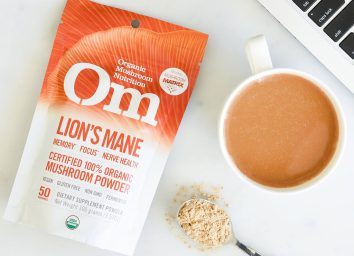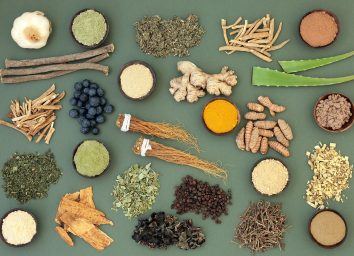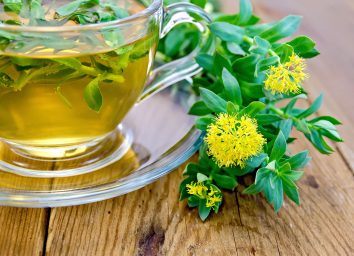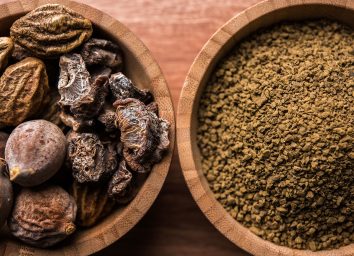Cordyceps: Learn the Health Benefits of This Traditional Chinese Adaptogen
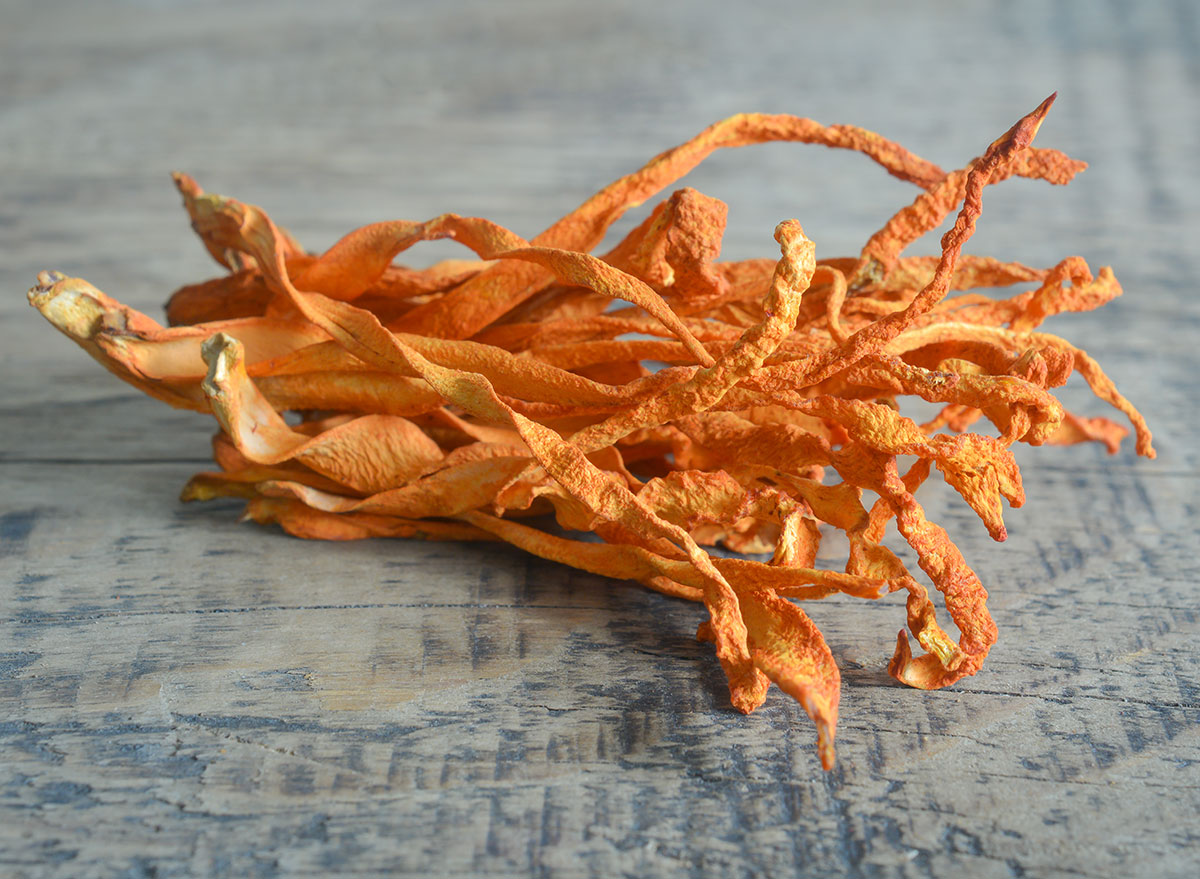
Cordyceps is a highly valued fungus used in traditional Chinese medicine. According to certified dietician nutritionist Dr. Kelly Bay DC, CNS, CDN. It has traditionally been used to treat inflammation and skin impurities and to boost athletic performance and the immune system. Recently, the adaptogenic mushroom has been trending in the wellness and fitness community—read on to discover how to use it for everyday wellness and its health benefits.
What is cordyceps?
There are more than 400 species of cordyceps, but one reigns supreme for its medicinal properties. Scientifically known as Ophiocordyceps sinensis, this type of cordyceps earned its colloquial name "Caterpillar fungus" because it's a parasitic fungus typically harvested from caterpillar larvae.
With its long finger-like body and orange-ish color, the wild mushroom looks like something you'd see scuba diving. And while it can be harvested and turned into a supplemental powder or pill, most cordyceps we see at the drugstore don't come from the ground—they come from the lab.
Daily Harvest's nutritionist Amy Shapiro MS, RD, CDN, explains: "Real cordyceps are difficult to harvest and would cost you over $9,000 per pound. Synthetically grown cordyceps made the supplement more accessible and much much less pricey."
What are the health benefits of cordyceps?
While more research is needed for conclusive proof of cordyceps benefits, Dr. Bay says the preliminary research on the mushroom has shown promise. Here are five of its best-known health benefits.
It may improve athletic performance
Cordyceps are best known for their ability to boost the production of adenosine triphosphate (ATP), which our body uses for energy. This, according to Shapiro, "gives our muscles more energy to use during exercise, and therefore may improve performance during exercise."
A small study published in the Chinese Journal of Integrative Medicine suggests this is true. Researchers split participants into two groups: those who received 3 grams of cordyceps per day, and those who received a placebo. After 60 days, while those who took the placebo saw no change, those who took cordyceps had increased their VO2 max—a measure used to establish athletic endurance—by 7 percent.
And good news if you like to go hard during HIIT or CrossFit: a second study published in the Journal of Dietary Supplement also found that cordyceps may boost performance during high-intensity exercise.
It may reduce signs of aging
Fungi may not be a super trendy addition to a skincare or beauty routine, but due to their high antioxidant content, they're an effective one. Antioxidants help protect our body from harmful compounds called free radicals, which speed up the aging process. Using cordyceps increases antioxidant intake, which has been linked to anti-aging and improved hair, skin, and nail health.
It may help manage diabetes
It sounds strange, but cordyceps may help manage diabetes. Shapiro explains: "Cordyceps is thought to mimic insulin—the hormone that manages blood sugar levels. Therefore, it may keep blood sugar levels within a healthy range."
In addition, by balancing blood sugar levels, cordyceps supplements may help reduce sugar cravings and therefore support healthy eating and weight loss.
It may have anti-inflammatory properties
Inflammation is the immune system's response to anything it interprets as irritating or harmful to the body. While some inflammation is good, too much over long periods of time can lead to inflammatory diseases like heart disease, Alzheimer's, and diabetes.
Cordyceps, however, is thought to reduce inflammation. "Cordyceps reduces the expression of inflammatory genes and pro-inflammatory cytokines such as TNF, IL8 and COX2," explains Dr. Bay. The result? Less systemic inflammation, and therefore a reduced risk of chronic inflammatory diseases.
It may be good for your heart
In China, cordyceps is an approved treatment for heart arrhythmia, a condition marked by an irregular pattern of heartbeats. "Its anti-inflammatory properties are thought to be beneficial for people dealing with heart disease because heart disease is basically a chronic inflammatory infection," explains Dr. Bay.
Are there any side effects to taking cordyceps?
Due to its long history of use in traditional Chinese medicine, Dr. Bay says it's safe to assume that cordyceps is generally well-tolerated by humans—so long as it comes from a high-quality source.
However, because it might interact with certain prescription medications, it's best to consult with your doctor before adding cordyceps to your routine, says Shapiro, who adds: "This supplement is not recommended for pregnant women or for those with autoimmune issues."
The most common side effect is digestive discomfort, she says, so if you experience any bloating, diarrhea, or abdominal cramps, stop taking it.
How to buy and take cordyceps
From tinctures and capsules to powders and teas, you can find cordyceps in a variety of forms. Because most cordyceps supplements are not FDA-approved, Shapiro says, "It's important to look at the label and make sure that they've been third-party tested."
Shapiro is a fan of the powdered supplements because they can be mixed into smoothies, coffee, cookies, and more. Generally, the recommended amount per serving is 1,000 to 3,000 milligrams daily. Shapiro suggests taking it consistently for a few weeks before determining whether or not it's working for you because adaptogens need to build up in the system before you notice an effect.
To get started with cordyceps supplements, you might want to try Four Sigmatic's Mushroom Coffee, which contains cordyceps, Four Sigmatic's Cordyceps Elixir, or Daily Harvest's cordyceps-infused Chickpea and Za'atar Harvest Bowl.
